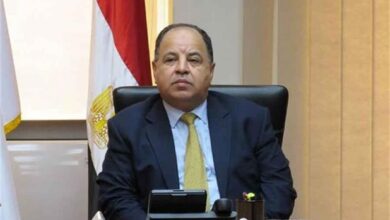Delays in revealing the details of the government’s budget have raised questions regarding the country’s economic policy and direction.
On 4 July, the Supreme Council of the Armed Forces (SCAF) finally gave confirmation that it had ratified the Ministry of Finance’s second proposed budget, four full days after the beginning of Egypt’s fiscal year, 1 July.
By then, the proposed budget should have been subject to an exercise between the country’s executive and legislative power, to ensure that it meets the approval of the general public while adhering to an overall plan to run the country’s resources.
The contradicting reports surrounding this year’s budget have left Egyptians in a state of confusion. The first budget, which Finance Minister Samir Radwan proposed in June, included a deficit of over 11 percent with increased government spending on services and around US$3 billion of World Bank money to help finance it. It also proposed a minimum wage of LE700 for all government employees.
Since then, the World Bank loan has been rejected, due to stipulations attached to the loan that were rejected by the SCAF. Now, Radwan proposes an 8.5 percent deficit, without foreign loans, with the rest “still up for speculation,” a researcher at the Ministry of Finance told Al-Masry Al-Youm
Analysts saw the initial budget as stopping short of achieving social justice while continuing Mubarak-era policies of pandering to the business community.
“I’m extremely perplexed by the fact that we still don’t have any concrete information regarding the budget, even after it was supposedly ratified by the SCAF,” said economic researcher and founding member of the Egyptian Socialist Party, Mohamed Nour al-Din.
Most are left analyzing what they think the new budget will include, as information is fed to the general public in piecemeal fashion.
Initially, the main difference between the two budgets is that the new budget will not include foreign loans. According to Radwan, this feature resulted from SCAF’s desire not to burden coming governments with a legacy of higher foreign debt.
Instead, the MOF intends to finance the deficit through a mixture of local debt and foreign “gifts”, which Radwan claims come with zero stipulations.
Al-Masry Al-Youm has learned that Radwan has lowered the government's proposed minimum wage to ease the deficit. The new minimum wage will be LE684 per month and will affect around 2 million government employees not employed on permanent contracts.
Another source of confusion came when Radwan said on Saturday that he would cancel the scheduled pension increases. On Sunday, he announced that LE9.1 billion of the coming budget would go toward the increases, while it would expand the number of families eligible for state pensions.
The drastic shift, which took place in under a day, was an indication, perhaps, that the budget was not ready in time, or that the government’s policy-making bodies are not working with synergy.
“This budget does not indicate any form of clear political direction for this government. This indicates that the policies of Mubarak are still in effect,” said Nour al-Din.
“It doesn’t seem like the revolution has passed by the Ministry of Finance.”




